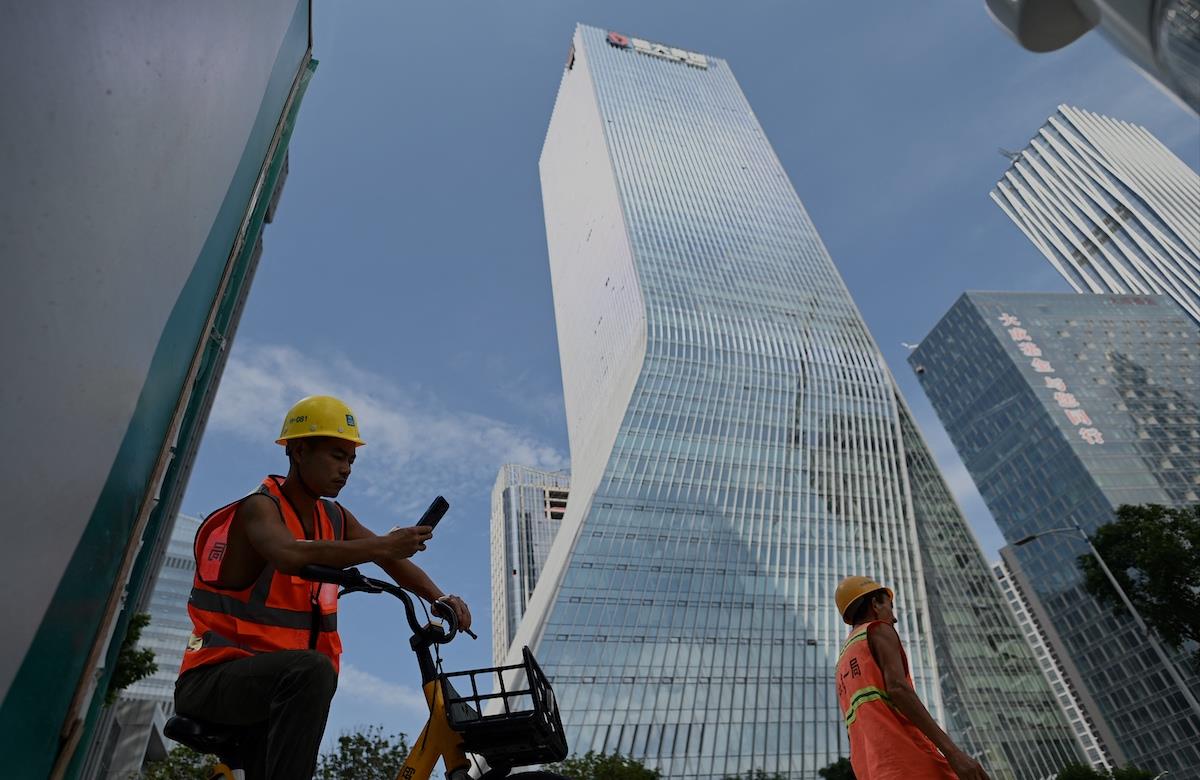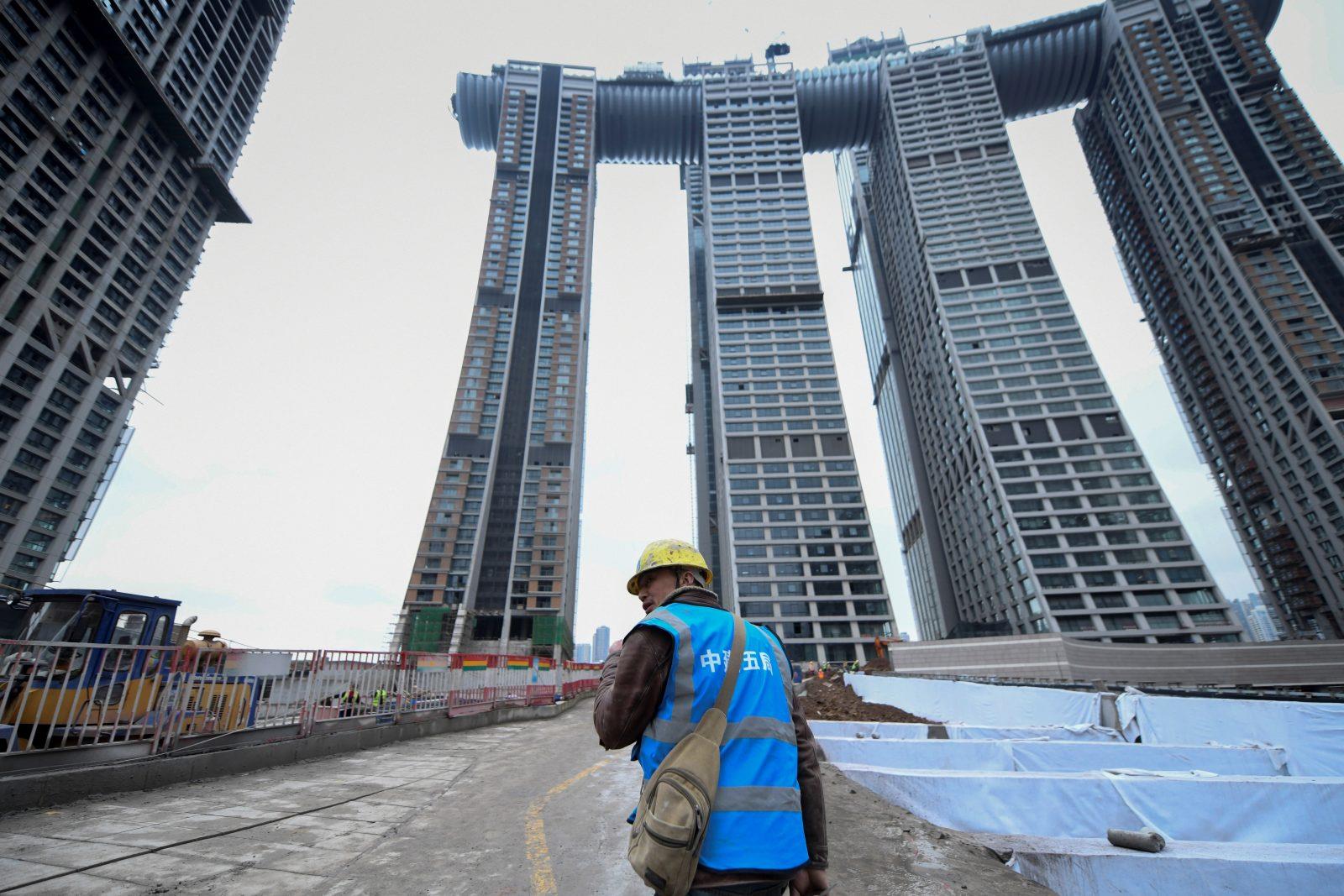(MENAFN- Asia Times)
Chinese property shares have faced heavy selling pressure over the past two days as investors expressed discontent with the People's bank of China's (PBoC) decision to put off an anticipated cut of the loan prime rate (LPR).
Economists had previously expected that China's central bank would cut the one-year and five-year LPRs by 0.1% and 0.05%, respectively, on Wednesday to boost homebuyer sentiment. However, the central bank held pat on concerns about rapidly shrinking yield differentials with the United States.
Stock investors are also worried by the lower-than-expected profitability of key Chinese property developers on reports their core profits declined on average by 15% in 2021. With less cash on hand, property companies have refrained from replenishing their land banks. The trend was reflected in the 27.4% decline in government land sale revenues during the first quarter of this year.
The Chinese property down cycle began in July 2020 when financial regulators announced“three red lines” that barred highly-geared property developers from receiving loans for expansion. Last year, many property developers sold their assets at huge discounts in order to replenish their cash flows and repay debts.
However, the debt crisis of several property giants, not least Evergrande, has hurt homebuyer confidence, including concerns they won't be able to receive their prepaid flats on time.
On April 13, Chinese Premier Li Keqiang hinted that the PBoC would lower the reserve requirement ratio (RRR) for banks to spur more lending to small and medium-sized enterprises in a bid to stimulate the local economy.
On April 15, the PBoC announced a 25 basis point RRR cut for all banks, which acted to release an estimated 530 billion yuan (US$83 billion) into the economy. However, the move fell short of market expectations of a 50 basis point RRR cut.
UBS said in a research report dated April 16 that the PBOC would probably lower one-year LPR by 10 basis points on Wednesday (April 20), a move it suggested could encourage until now reluctant homebuyers to enter the market.
However, the PBoC maintained the one-year and five year LPRs at 3.7% and 4.6%, respectively.
Alicia García-Herrero, chief economist for Asia Pacific at Natixis, said such a cautious monetary approach reflected Chinese policymakers' concerns about the rapidly shrinking yield differential with the US, as well as expectations that fiscal policy should also support future growth.

Workers in front of the Evergrande headquarters in Shenzhen in southeastern China on September 26, 2021. Photo: AFP / Noel Celis
Almost all property developers' Hong Kong-listed shares declined on Wednesday and Thursday. Shares of KWG Group were down 14.8% over the two days while shares of Country Garden dropped 11.9%. Yuzhou Group fell 12.9% while Greentown China lost 11.5% over the same two-day period.
Shares of China Vanke, a state-owned property developer, fell 10.6% on Wednesday but rebounded slightly by 1.1% on Thursday.
Last month, Chinese property stocks were under pressure after some said they would not be able to publish their annual results for 2021 as required by regulators by the end of March. Trading of these companies' shares in Hong Kong were suspended from April 1.
As of Thursday, six property developers including Evergrande and Sunac have still been unable to release unaudited results. Nine others have released their unaudited accounts while 23 have released their audited results.
“For those developers that reported results on time, the overall performance was poor and missed the market's and our expectations,” said Lung Siufung, a property analyst at CCB International Securities.“Their core profit declined by 15% on average in 2021 and missed expectations by 20%, mainly due to slower sales and lower profitability.”
Lung said property developers' gross profit margin plunged to 19.7% last year, down 5.4 percentage points from 2020 and lagging behind the market expectation of 22.5%.
Due to refinancing difficulties and slower contracted sales in the second half of last year, unrestricted cash at the key developers declined 20%, with state-owned and privately-owned developers declining 12% and 22%, respectively, Lung added.

A worker at the construction site of Raffles City Chongqing in southwest China's Chongqing Municipality in a file photo. Photo: AFP / Wang Zhao
“Slower economic growth and the Covid-19 outbreak will affect housing demand and supply in the near term,” he said.“We expect the nationwide property sales to decline 10-15% in 2022 and contract 5-10% annually over the next couple of years.”
Against this pessimistic backdrop, property developers have become less willing to replenish their land banks, especially when many of them are still struggling to repay their debts this year.
According to the data released by the Ministry of Finance on Wednesday, the government's land sales revenue fell 27.4% to 1.2 billion yuan (US$187 billion) in the first three months of this year compared to a year ago.
The downcast figure does not yet reflect the impact of the large-scale lockdowns in major Chinese cities including Shanghai and Guangzhou in April.
Read: Chinese property stocks in free fall as trading suspension looms
Follow Jeff Pao on Twitter at @jeffpao3
MENAFN21042022000159011032ID1104066769
Legal Disclaimer:
MENAFN provides the information “as is” without warranty of any kind. We do not accept any responsibility or liability for the accuracy, content, images, videos, licenses, completeness, legality, or reliability of the information contained in this article. If you have any complaints or copyright issues related to this article, kindly contact the provider above.